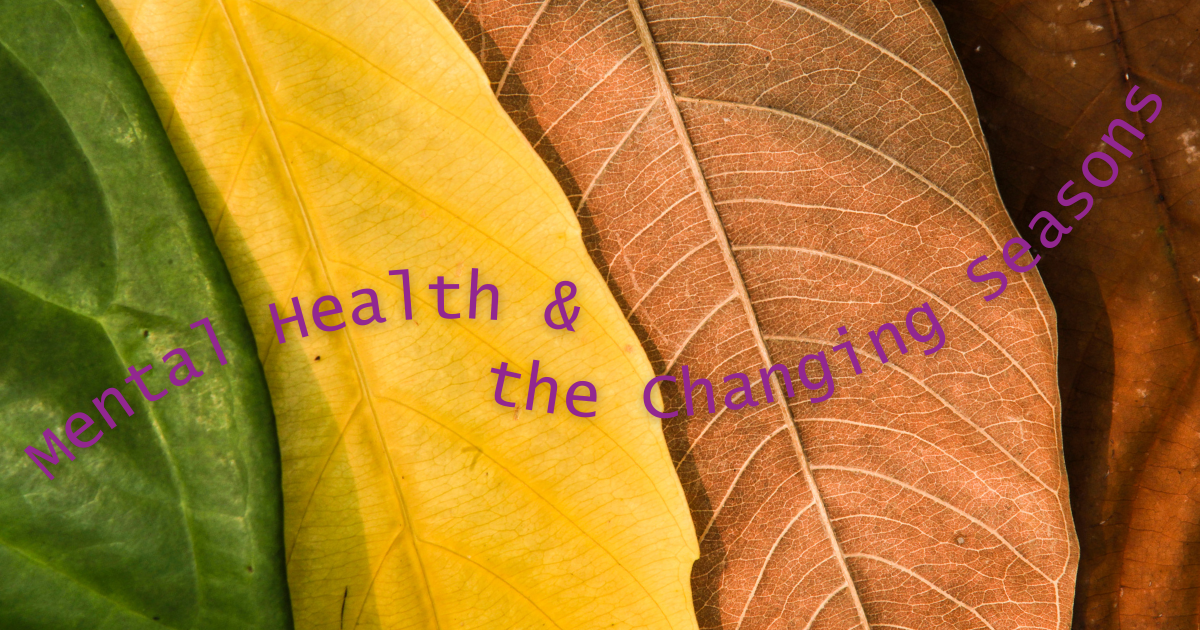The shifting of the seasons, while often aesthetically pleasing, can significantly impact an individual’s mental health. As the seasons change, so do the levels of natural sunlight, temperatures and even societal activities—all of which contribute to psychological and emotional changes. For some, these shifts might be subtle; for others, they can be life-altering, leading to conditions such as Seasonal Affective Disorder (SAD).
The Science Behind Seasonal Changes and Mental Health
The relationship between the changing seasons and mental health is not merely anecdotal; scientific research supports this connection. One key factor is the level of sunlight exposure, which directly influences the body’s production of serotonin, the “feel-good” neurotransmitter. Reduced sunlight in the fall and winter can lead to decreased serotonin levels, triggering depression symptoms for some individuals.

Seeking out groups that can help support you during the changing of the seasons can help you feel less lonely in the darker months
Moreover, lack of sunlight can disrupt the body’s internal clock, or circadian rhythm, affecting sleep patterns and mood. Temperature changes can also contribute, as colder weather often limits outdoor activities, reducing opportunities for exercise and social interaction, both of which are vital for maintaining mental health.
Identifying Seasonal Mental Health Struggles
Recognizing the signs of seasonal mental health changes can be the first step toward effective coping. Symptoms often include:
- Persistent low mood
- Loss of interest in activities once enjoyed
- Changes in sleep and eating patterns
- Feeling lethargic or agitated
If you or a loved one are experiencing these symptoms, consult with a healthcare professional for diagnosis and treatment options suitable for you.
Coping Strategies
Light Therapy
One of the most effective treatments for SAD is light therapy, which involves sitting near a specialized light box for about 30 minutes each day. Newer studies suggest that simply increasing the amount of light used in light therapy has increasingly positive effects on those utilizing it. The light mimics natural sunlight and can help improve mood and energy levels.
Exercise and Social Interaction
Regular physical activity and social engagement can boost serotonin levels. Even in colder weather, bundling up for a quick walk or engaging in indoor activities can help.
Professional Help
Counseling or psychotherapy can provide useful coping strategies. Medication like antidepressants can also be an option for more severe symptoms if a doctor determines they’re needed.

Sometimes therapy or medical help can benefit patients who are experiencing SAD symptoms
Mindfulness and Relaxation Techniques
Practicing mindfulness, meditation, or engaging in relaxation techniques like deep breathing can also contribute to better mental well-being.
Don’t Face the Seasons Alone
If seasonal changes are affecting your mental health and are causing you to go down the path of addiction, know that you don’t have to go through it alone. At Landmark Recovery, we offer a range of mental health treatment options to support you on your journey toward recovery. Contact us today at 888-448-0302 to discuss how we can help you find your path to a healthier, happier you.

Choose Recovery Over Addiction
We're here 24/7 to help you get the care you need to live life on your terms, without drugs or alcohol. Talk to our recovery specialists today and learn about our integrated treatment programs.




